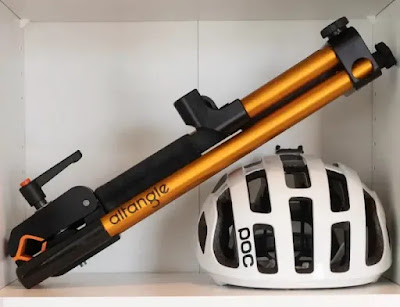Last week, I wrote about the arguments over a planned bike lane in Berkeley, California. One resident referred to it as a "culture war."
If it is, I am surprised that controversy about another bit of bicycle-related policy or planning hasn't been seen in the same way. I am referring bicycle-licensing regulations.
While bike lane battles have garnered a lot of attention during the past decade or so, bike licensing has been mostly an under-the-radar issue for nearly as long as bicycles have existed.
The battle-lines in bike-lane conflicts are drawn largely along generational lines and between business owners who fear losing parking spaces and people who want more walkable and cycle-able downtowns. On the other hand, the quieter battles over licensing laws divide people, ironically, pit people against each other in a very visible way--one that has defined some loud and violent protests in recent years.
While there was little or no bike lane construction, at least in the US, between the end of World War I and the beginning of this century, many jurisdictions, from small seaside villages to major metropoli, have had bicycle licensing regulations on their books for decades whether or not most citizens are or were aware of them. As an example, in 1957 Toronto repealed such a law that had been on the books since 1935. Several times since, the idea of resurrecting the law, or some version of it has been re-visited and, ultimately, rejected, albeit for different reasons.
When the Canadian city got rid of the requirement that stood for more than two decades, few adults rode bicycle. Thus, according to city fathers (yes, they were all men) "licensing of bicycles be discontinued because it often results in an unconscious contravention of the law at a very tender age; they also emphasize the resulting poor public relations between police officers and children." Translation: Kids break a law they don't realize exists until they're busted for it, so no wonder they grow up hating cops.
The cost-ineffectiveness of the scheme was also cited in scrapping it and against reviving it. Also mentioned in the discussions of bringing it back to life is that licensing does little, if anything, to promote bicycle safety or return stolen bikes to their owners--two rationales that have been given for mandating bike registration in what one of the city's most famous natives, Drake, calls "The Six." The cost of administering the program has also been invoked as a reason to end, or not to begin, bicycle licensing and registration programs in other locales.
During the last few years, however, an objection to bike licensing has echoed something that has motivated so many protests of the past few years: racial injustice. As an incident in Perth Amboy, New Jersey showed all too clearly, in those few instances when the police stop or even arrest cyclists for riding without a license--or not wearing a helmet, or for violating some other rarely-if-ever-enforced law--the ones penalized are not White and/or do not conform to gender "norms."
That is one reason David Martinez worked to abolish a bicycle registration mandate in his hometown and state of Costa Mesa and California, respectively. Three years ago, he went to the police to register his bike. When he asked about the program and who gets ticketed, "they said, 'we might ticket the homeless." That motivated him to make a public records request. He found that, according to the department's own data, most of the citations were issued on the city's west side, an old industrial area where, not surprisingly, much of the city's nonwhite and homeless populations are concentrated. He presented his findings to safe streets advocates who, in turn, contacted politicians.
Now Costa Mesa is about to comply with an omnibus bill California Governor Gavin Newsom signed in October. It calls for, among other things, the abolition of bicycle-licensing and -registration laws and regulations, which have been locally administered, throughout the state. Costa Mesa is the latest municipality to align itself with the new law.
I don't know whether Martinez or anyone else in the Golden State has framed the effort to end bicycle registration as a "culture war." However, whether or not he has used such terminology, he (like, I imagine, Newsom) no doubt understands bicycle licensing--or, more precisely, how it's enforced--as a racial and economic justice issue precisely because it has never served the purposes (safety, recovery of stolen bikes) given as its rationale.





.jpg)



.jpg)

.jpg)
.jpg)









